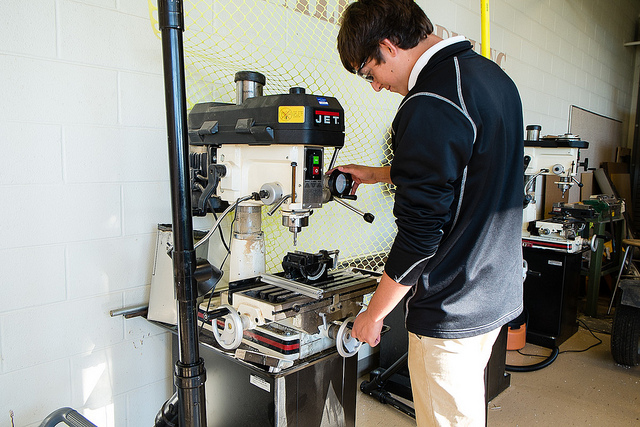Tennesseans want our students to graduate with the skills needed to succeed in the “real world.” Work-based learning (WBL) in Tennessee provides students with invaluable real-world work experience with local employers while earning school credit. WBL programs bridge the gap between classroom coursework and in-demand careers.
As a student, Sydni was very interested in accounting and wanted to learn more. She decided to apply for the WBL program during her senior year in Franklin. While working in the accounting department of a local property management firm, she gained valuable accounting, technology, communication, and collaboration skills. Her WBL teacher, Dr. Hobson, ensured that the employer gave her challenging assignments and supported her academic growth throughout the term. Through this WBL placement, Sydni has established a relationship with the firm and has continued working with them as she studies at the University of Tennessee at Knoxville. Sydni knows that without WBL, she would not be as prepared for her future. Learning professionalism in a business atmosphere has set her apart from her business school classmates and put Sydni on the path to success.
WBL is not a “dumping ground” for students to leave school early and go to work. It is a training ground to prepare them for college and the workforce with the knowledge and skills necessary for success. Research has shown that WBL programs have been linked to higher attendance and graduation rates among students. Enrolling in a WBL program equips students with the skills they need to join the workforce.
WBL programs have shown to be as beneficial to the Tennessee economy as they are to students. A number of employers in the Volunteer State are already working with their local K-12 school systems to offer work-based learning opportunities. One example is Saks Fifth Avenue, who maintains a distribution center in Smyrna, Tennessee. Saks offers students opportunities to learn about supply chain and logistics systems.
By supporting students, Tennessee companies ensure a ready workforce for the future. Companies that participate in WBL programs get a head start at training future employees and benefit from a more effective and sustainable workforce. Critical partnerships are built between the community and employers in work-based learning programs.
This is why the Tennessee General Assembly passed a proposal that encourages school districts and employers to participate in WBL, giving more students across Tennessee the opportunity to gain necessary skills for postsecondary studies and jobs.
Students who are interested in WBL opportunities should inquire with their local school’s WBL coordinator and school counselor. Companies that are interested in providing WBL placements should get in touch with the WBL coordinator at their local high school.
This SCORE Sheet post was co-authored by Bradley Jackson, executive director of the Tennessee Chamber of Commerce & Industry; Dr. Tunisha Hobson, a college, career, and technical education educator at Franklin High School and a 2017-18 Tennessee Educator Fellow; and Sydni Crowe, a University of Tennessee, Knoxville student and a 2017 Work-Based Learning Portfolio Competition winner.

